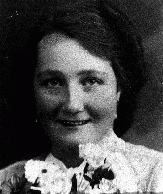You searched for: 澳门威尼斯人网址【手动输入∶___bet126.net___】最新地址请收藏,澳门威尼斯人网址是多少,澳门威尼斯人全部网址,澳门新威尼斯人的网址,澳门威尼斯人网址玩法,澳门威尼斯人网址44,澳门威尼斯人开户网址。
<< Previous | Displaying results 341-350 of 430 for "澳门威尼斯人网址【手动输入∶___bet126.net___】最新地址请收藏,澳门威尼斯人网址是多少,澳门威尼斯人全部网址,澳门新威尼斯人的网址,澳门威尼斯人网址玩法,澳门威尼斯人网址44,澳门威尼斯人开户网址。" | Next >>
-
Maria Terez Halpert Katz
ID CardAlso known by her Yiddish name, Tobe, Terez was raised in a religious Jewish family. Her father and two brothers were rabbis. Though Terez was a promising student, she didn't pursue an advanced education because her traditional family wanted her to marry. So Terez married Menyhert Katz and moved to the town of Kisvarda [in Hungary]. There, she raised five daughters and one son; two other sons died. 1933-39: Terez's twin sons died when they were 8 months old, and she was convinced that their death was a…
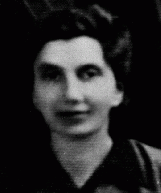
-
Izabella Katz
ID CardIzabella was one of eight children raised in a religious Jewish family in the small town of Kisvarda in northeastern Hungary. Every Friday Izabella and her brother and four younger sisters went to the library to borrow the maximum number of books for their mother. Izabella attended public schools and longed to move to a big city. 1933-39: Antisemitism was prevalent. Izabella can't count the number of times she was called "smelly Jew." Her family cringed at "Heil Hitler" speeches from Germany on the radio…
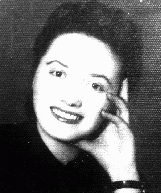
-
Susanne Ledermann
ID CardSusanne was the younger of two daughters born to Jewish parents in the German capital of Berlin. Her father was a successful lawyer. Known affectionately as Sanne, Susanne liked to play with her sister on the veranda of her home and enjoyed visiting the Berlin Zoo and park with her family. 1933-39: After the Nazis came to power in January 1933, it became illegal for Jewish lawyers to have non-Jewish clients. When Susanne was 4, her father's law practice closed down and the Ledermanns moved to the…
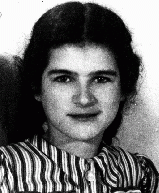
-
Franz Anton Ledermann
ID CardFranz was raised in a town in eastern Germany. The son of Jewish parents, he earned a law degree from Breslau University and a doctorate of jurisprudence from Geneva University in Switzerland. At the age of 35 he married Ilse Luise Citroen, a woman of Dutch-Jewish ancestry. The couple settled in Berlin where Franz had a successful law practice. The Ledermanns had two daughters. 1933-39: The Nazis came to power in January 1933. Ilse's Dutch relatives encouraged the Ledermanns to immigrate to the…
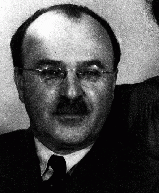
-
Ilse Luise Citroen Ledermann
ID CardIlse was one of four children born to a Dutch-Jewish father and a German-Jewish mother. In 1924 she married Franz Ledermann, a successful lawyer who was 15 years her senior. The couple made their home in Berlin, where they raised two daughters, Barbara and Susanne. 1933-39: The Nazis came to power in January 1933. While the Ledermanns were vacationing in Holland that summer, Ilse's Dutch cousin advised her not to return to Germany. Franz was reluctant to remain in Holland without a job, but when the Nazis…
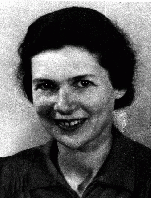
-
Gert Laske
ID CardGert was born to a Jewish family settled in northeast Berlin, known as one of the city's "red" (largely communist) districts. They lived in a large tenement building. Gert's parents were from the eastern part of Germany, which had been ceded to Poland in 1919. His father, proud of his Iron Cross, Second Class, earned in World War I, was active in an association of Jewish veterans. 1933-39: After Hitler came to power, a neighbor told Gert's mother that they couldn't greet each other on the street…
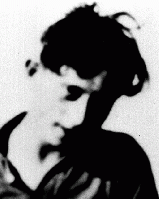
-
Onti Lazar
ID CardOnti, the youngest of five sons, was born to religious Jewish parents in northern Transylvania, a region of Romania that had belonged to Hungary until 1918. Onti's family usually called him Usher, which was the diminutive of his Yiddish name, Anschel. As a little boy, he liked collecting figurines. Though Onti grew up in a Hungarian-speaking home, he attended Romanian public schools. 1933-39: At age 13 Onti quit school to help make ends meet. He wanted to become a watchmaker, but he settled on working as…
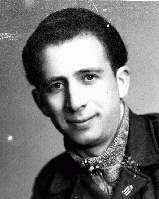
-
Felicia Karo
ID CardFelicia grew up in a Jewish family living in a predominantly Catholic neighborhood in the large, industrial city of Lodz. Her father's side of the family had lived in Poland for 400 years. He was the principal of a Jewish secondary school for boys. Known affectionately by family and friends as Lusia, Felicia attended a bilingual Jewish school in which both Hebraic and Polish subjects were taught. 1933-39: When Felicia was 12 she heard a lot of bad things about the Nazis. A Polish-born German Jewish…
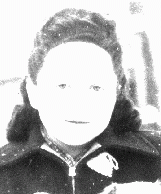
-
Josel Gerszonowicz
ID CardThe oldest of eight children, Josel was born in Miechow, a small town in south central Poland. His father was a machinist and locksmith. As a boy, Josel spent long days learning Hebrew in the Jewish school and taking general subjects at the public school. He was 13 years old when he left school to work in his father's shop. 1933-39: Josel met his wife, Esther, through a matchmaker, and they settled in nearby Dzialoszyce, a town with a Jewish community of about 7,000, and a beautiful synagogue that had…
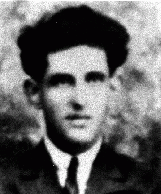
-
Frieda Greinegger
ID CardFrieda was the fourth of five children born to strict Catholic parents. She had one brother and three sisters. Frieda grew up on a large farm near the village of Michaelnbach in northern Austria. The farm had cattle, horses, pigs and poultry, and the children worked long hours helping their parents on the farm. At age 12, Frieda left school to work full time on the farm. 1933-39: Germany annexed Austria in March 1938. When war broke out in September 1939, Frieda's brother was drafted into the German army.…
